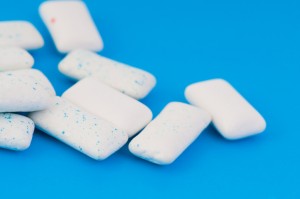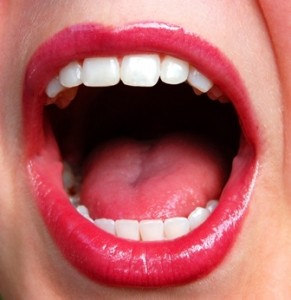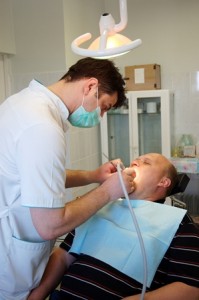
Herpes Simplex (HSV – 1)
You’ve navigated your way around tempting Thanksgiving treats and have read articles about flu prevention techniques, but have you stopped to think about the dangers of exchanging saliva?
The Herpes simplex virus, or HSV-1, is the particular virus strand that is the cause of cold sores (also known as fever blisters). It’s estimated that over 50% of the nation has been infected with the virus. Some carriers of HSV-1 have never had a cold sore and are unaware that they’re carriers, but are still contagious. This means that although they may never be plagued by a cold sore, they still retain the ability to transmit the virus to others, where it can cause unsightly and painful sores on lips and in the mouth. These sores can last up to two weeks, be pus-filled, and eventually crust over before they disappear. The virus will always remain latent in the body, waiting to be triggered by uncontrollable outside forces such as stress or exhaustion.
But how can I get it?
Cold sores are usually spread through saliva and enter through a minuscule break in the skin. This can be achieved not only by hanging out under the mistletoe at a party, but by sharing food as well. Parents can spread the Herpes Simplex virus to their kids by drinking from the same cup of hot chocolate or sharing eating utensils.
A cold sore just appeared. What do I do now?
Fortunately, there are many over-the-counter and prescription treatments available to minimize the appearance of cold sores and their associated discomfort. Talk to your dentist or doctor when you have an initial cold sore outbreak or even if the current medication you’re taking isn’t working as well as desired.
There’s a bright side?
The good thing is that you no longer have to feel guilty about keeping your favorite holiday treat to yourself. Feel free to eat, drink, and be merry! Just remember to be safe now that you’re informed about the dangers of mistletoe.
You’ve navigated your way around tempting treats and have read articles about flu prevention, but have you stopped to think about the dangers of exchanging saliva?
Herpes simplex
The Herpes simplex virus, or HSV-1, is the particular virus strand that causes cold sores (also known as fever blisters). It’s estimated that over 50% of the nation has been infected with the virus. Some carriers of HSV-1 have never had a cold sore and are unaware that they’re carriers, but are still contagious. This means that although they may never be plagued by a cold sore, they still retain the ability to transmit the virus to others, where it can cause unsightly and painful sores on lips and in the mouth. These sores can last up to two weeks, be pus-filled, and eventually crust over before they disappear. The virus will always remain latent in the body, waiting to be triggered by uncontrollable outside forces such as stress, cold weather, or exhaustion.
But how can I get it?
Cold sores are usually spread through saliva and enter through a minuscule break in the skin. This can be achieved not only by hanging out under the mistletoe at a party, but by sharing food as well. Parents can spread the Herpes simplex virus to their kids by drinking from the same cup of hot chocolate or sharing eating utensils.
A cold sore just appeared. What do I do now?
Fortunately, there are many over-the-counter and prescription treatments available to minimize the appearance of cold sores and their associated discomfort. Talk to your dentist or doctor when you have an initial cold sore outbreak or even if the current medication you’re taking isn’t working as well as desired.
Is there a bright side?
The good thing is that you no longer have to feel guilty about keeping your favorite holiday treat to yourself. Feel free to eat, drink, and be merry! Just remember to be safe now that you’re informed about the dangers of mistletoe.
 How much do you think you influence your little one? If you think the answer is “Not much,” guess again. According to a study published by the Journal of Dental Research, parents have an enormous amount of influence on their children, and that extends to areas of health and wellbeing. The study found that if a mother had a cavity, her child was twice as likely as other children to also have a cavity.
How much do you think you influence your little one? If you think the answer is “Not much,” guess again. According to a study published by the Journal of Dental Research, parents have an enormous amount of influence on their children, and that extends to areas of health and wellbeing. The study found that if a mother had a cavity, her child was twice as likely as other children to also have a cavity. When asked to come up with a list of foods that dentists hate, gum will almost certainly appears in your top five. After all, this sticky, chewy candy can leave your jaw sore and work its way into tricky places in your smile – not to mention that it’s a natural enemy of traditional braces. But have you heard that the treat can actually improve the health of your teeth and gums instead of hurting them? It’s true! The American Dental Association has officially recognized that specific types of sugarless chewing gum have been scientifically proven to bolster optimal dental health.
When asked to come up with a list of foods that dentists hate, gum will almost certainly appears in your top five. After all, this sticky, chewy candy can leave your jaw sore and work its way into tricky places in your smile – not to mention that it’s a natural enemy of traditional braces. But have you heard that the treat can actually improve the health of your teeth and gums instead of hurting them? It’s true! The American Dental Association has officially recognized that specific types of sugarless chewing gum have been scientifically proven to bolster optimal dental health. Now that we’re heading into warmer weather, people are likely to spend more time outdoors doing a variety of activities, including sports. Taking advantage of the higher temperatures to get some exercise and to spend time with friends is a good thing, of course, but athletes should keep a few pointers in mind related to their oral health.
Now that we’re heading into warmer weather, people are likely to spend more time outdoors doing a variety of activities, including sports. Taking advantage of the higher temperatures to get some exercise and to spend time with friends is a good thing, of course, but athletes should keep a few pointers in mind related to their oral health. The health benefits of weight loss are many. Being overweight can contribute to heart disease, heart attack, joint pain, and diabetes. And now, research shows that being overweight can put you at risk for another type of health problem: gum disease. You may not connect your weight with your oral health, but the truth is that your smile can benefit from you maintaining a healthy weight.
The health benefits of weight loss are many. Being overweight can contribute to heart disease, heart attack, joint pain, and diabetes. And now, research shows that being overweight can put you at risk for another type of health problem: gum disease. You may not connect your weight with your oral health, but the truth is that your smile can benefit from you maintaining a healthy weight. Flossing is a crucial part of dental hygiene, and one that shouldn’t be taken lightly; after all, it’s a tried-and-true method for getting rid of stubborn food particles that settle in hard-to-reach places between teeth, as well as an effective way to disrupt cavity-causing bacteria and keep them getting too comfortable. Of course, you might be thinking: how hard is it to drag some string between your teeth? Harder than you might think. Countless people make casual errors every day when flossing, and while it might not seem like a big deal at the time, you could find yourself in need of fillings or other restorative dental work before you know it. Here are five common mistakes that are made during flossing that you should watch out for:
Flossing is a crucial part of dental hygiene, and one that shouldn’t be taken lightly; after all, it’s a tried-and-true method for getting rid of stubborn food particles that settle in hard-to-reach places between teeth, as well as an effective way to disrupt cavity-causing bacteria and keep them getting too comfortable. Of course, you might be thinking: how hard is it to drag some string between your teeth? Harder than you might think. Countless people make casual errors every day when flossing, and while it might not seem like a big deal at the time, you could find yourself in need of fillings or other restorative dental work before you know it. Here are five common mistakes that are made during flossing that you should watch out for: One common issue patients raise with their dentist is tooth sensitivity. Many experience it without knowing what causes it. In today’s post, we’d like to look at that question.
One common issue patients raise with their dentist is tooth sensitivity. Many experience it without knowing what causes it. In today’s post, we’d like to look at that question.

 With November underway, there are less than two months until the start of 2013. Before you know it, Thanksgiving will be here, and then Christmas and New Year’s. With everything that’s coming, the last thing on the minds of most people is dental insurance. But keeping dental insurance in mind is important. Here are a few reasons why:
With November underway, there are less than two months until the start of 2013. Before you know it, Thanksgiving will be here, and then Christmas and New Year’s. With everything that’s coming, the last thing on the minds of most people is dental insurance. But keeping dental insurance in mind is important. Here are a few reasons why: Some people love the taste of coconut, and coconut water has been a trendy drink in the last couple of years. But whether you love it on your German chocolate cake or can’t stand the stuff, recent research shows that coconut may have more than just taste benefits. Well, coconut oil, that is. According to a study from the Athlone Institute of Technology in Ireland, coconut oil’s antibacterial properties could spell good news for your smile and help you avoid cavities.
Some people love the taste of coconut, and coconut water has been a trendy drink in the last couple of years. But whether you love it on your German chocolate cake or can’t stand the stuff, recent research shows that coconut may have more than just taste benefits. Well, coconut oil, that is. According to a study from the Athlone Institute of Technology in Ireland, coconut oil’s antibacterial properties could spell good news for your smile and help you avoid cavities.